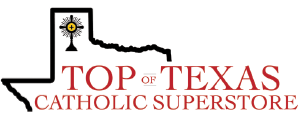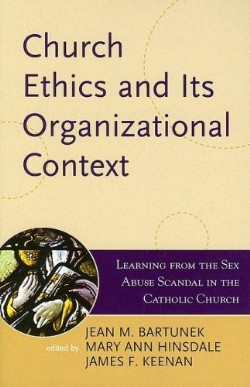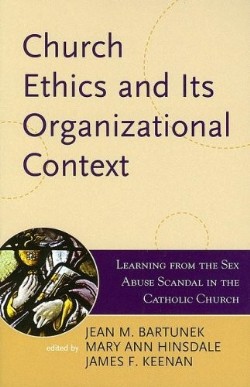Jean Bartunek
Showing all 2 resultsSorted by latest
-
Church Ethics And Its Organizational Context
$102.00Add to cartIntroduction
Jean M. Bartunek And James F. Keenan
Part I. New Ways Of Understanding The CrisisSection 1: The Crisis And The Scandal
Understanding The Crisis In The Church
Paul Lakeland
The Sexual Abuse Scandal As Social Drama
Jean M. Bartunek
Section 2: The Context Of The Church In The United StatesThe Six Stages Of Catholicism In America
James M. O’Toole
The Struggle To Preserve Religious Capital: A Sociological Perspective On The Catholic Church In The United States
Michele Dillon
Section 3. The Church And Leadership: Perspectives On ReformEcclesiological Perspectives On Church Reform
Richard R. Gaillardetz
Looking Good Vs. Being Good: Pitfalls Of Maintaining Perceptions Of Strong Leadership Following Organizational Scandals
Kimberly D. Elsbach
Part II. Ethics, Organizations, And Church CultureSection 1: Framing Professional Relationships In The Church
Toward An Ecclesial Professional Ethics
James F. Keenan
Renewing The Psychological Contracts Of The Clergy And Laity
Denise M. Rousseau
Section 2: Organizational Perspectives On Morality And EthicsOrganizational Morality
C. R. Hinings And Michael K. Mauws
Ethics Codes, Intervention And Corruption Reform Methods For Ecclesial Professionals
Richard P. Nielson
Section 3: Proposing An Ethical Code?A Professional Code Of Ethics Reflecting The Nature Of A Christian Vocation And An Understanding Of Leadership In The Church
Francis J. Butler
A Professional Code Of Ethics?
Richard M. Gula S.S.
Section 4: Civil And Canonical CautionsToward An Ecclesiastical Professional Ethic: Lessons From The Legal Profession
Daniel R. Coquillette And Judith A. McMorrow
“Turning Pro:” Theologico-Canonical Hurdles On The Way To A Professional Ethic For Church Leaders
John P. Beal
Section 5: Reflections On An Ethical Church CultureReflections On Ethics Organizations, And Church Culture
James E. Post
An Ethical Church Culture
Patricia M. Y. Chang
Biographical SketchesAdditional Info
Church Ethics and Its Organizational Context is the first book to provide a broadly interdisciplinary approach to understanding the leadership crisis in the Catholic Church in the wake of the sex abuse scandal and how it was handled. Well-known scholars, religious clergy, and laymen in the trenches of church formation and leadership come together from the disciplines of organizational behavior, theology, sociology, history, and law, to foster the creation of a new code of ethics that is both ecclesial and professional. Touching on issues of governance, authority, accountability, and transparency, this volume goes on to specifically explore whether and how professional ethics can shape the identity and actions of Church leaders, ministers, and their congregations.While evoked by the sex scandal in the Church, the essays in this book raise questions that have implications far beyond this current issue, to much broader issues such as the role of professionalism in ethics and what it means for an organization to engage in moral action.
-
Church Ethics And Its Organizational Context
$44.00Add to cartIntroduction
Jean M. Bartunek And James F. Keenan
Part I. New Ways Of Understanding The CrisisSection 1: The Crisis And The Scandal
Understanding The Crisis In The Church
Paul Lakeland
The Sexual Abuse Scandal As Social Drama
Jean M. Bartunek
Section 2: The Context Of The Church In The United StatesThe Six Stages Of Catholicism In America
James M. O’Toole
The Struggle To Preserve Religious Capital: A Sociological Perspective On The Catholic Church In The United States
Michele Dillon
Section 3. The Church And Leadership: Perspectives On ReformEcclesiological Perspectives On Church Reform
Richard R. Gaillardetz
Looking Good Vs. Being Good: Pitfalls Of Maintaining Perceptions Of Strong Leadership Following Organizational Scandals
Kimberly D. Elsbach
Part II. Ethics, Organizations, And Church CultureSection 1: Framing Professional Relationships In The Church
Toward An Ecclesial Professional Ethics
James F. Keenan
Renewing The Psychological Contracts Of The Clergy And Laity
Denise M. Rousseau
Section 2: Organizational Perspectives On Morality And EthicsOrganizational Morality
C. R. Hinings And Michael K. Mauws
Ethics Codes, Intervention And Corruption Reform Methods For Ecclesial Professionals
Richard P. Nielson
Section 3: Proposing An Ethical Code?A Professional Code Of Ethics Reflecting The Nature Of A Christian Vocation And An Understanding Of Leadership In The Church
Francis J. Butler
A Professional Code Of Ethics?
Richard M. Gula S.S.
Section 4: Civil And Canonical CautionsToward An Ecclesiastical Professional Ethic: Lessons From The Legal Profession
Daniel R. Coquillette And Judith A. McMorrow
“Turning Pro:” Theologico-Canonical Hurdles On The Way To A Professional Ethic For Church Leaders
John P. Beal
Section 5: Reflections On An Ethical Church CultureReflections On Ethics Organizations, And Church Culture
James E. Post
An Ethical Church Culture
Patricia M. Y. Chang
Biographical SketchesAdditional Info
Church Ethics and Its Organizational Context is the first book to provide a broadly interdisciplinary approach to understanding the leadership crisis in the Catholic Church in the wake of the sex abuse scandal and how it was handled. Well-known scholars, religious clergy, and laymen in the trenches of church formation and leadership come together from the disciplines of organizational behavior, theology, sociology, history, and law, to foster the creation of a new code of ethics that is both ecclesial and professional. Touching on issues of governance, authority, accountability, and transparency, this volume goes on to specifically explore whether and how professional ethics can shape the identity and actions of Church leaders, ministers, and their congregations.While evoked by the sex scandal in the Church, the essays in this book raise questions that have implications far beyond this current issue, to much broader issues such as the role of professionalism in ethics and what it means for an organization to engage in moral action.


